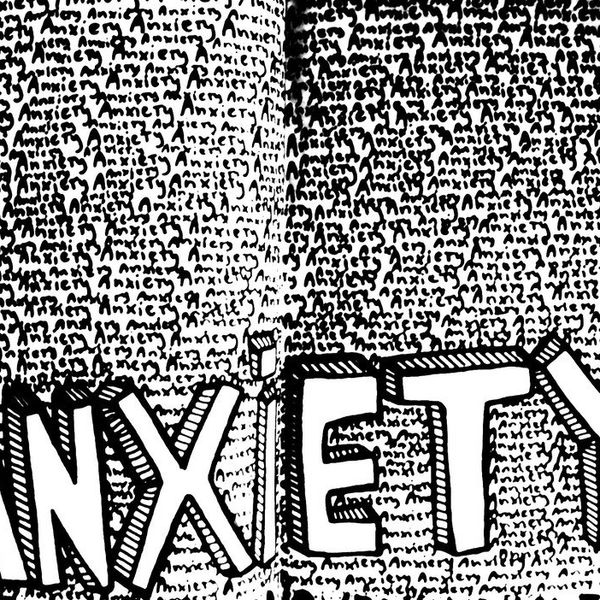In 2016, M. Night Shyamalan released his infamous movie Split, in which three girls are kidnapped by a man suffering from dissociative identity disorder and have to escape as his disorder grows worse and more violent.
This movie marked a turning point in cinema, both in the way young people view people with mental illness as well as how we view mental illness in general as a population.
The movie was a thriller, and the plot unfolded rapidly. After the film, many people were asking questions as to how accurately the movie displayed the dissociative identity disorder side of the main character. With that being said, many people also began a discussion confusing the disorder with another much more common disorder: schizophrenia.
In 1911, Swiss psychiatrist Eugen Bleuler coined the word “schizophrenia”-- a word meaning literally split (“schitzo”) mind (“phrenia”). This word origin often leads to confusion and swapping of terms when discussing both schizophrenia and dissociative identity disorder.
Let me make this clear: they are not interchangeable.
DID-- or dissociative identity disorder-- is an extremely rare disease often suffered by individuals who experienced extremely high levels of abuse or assault. Often times, victims have developed extremely different personalities (normally one or two but can vary) that can have their own specific traits, history, and voices. Like I said, these personalities are often developed in response to coping with undergoing repeated and extreme abuse. These personalities act as protectors, comforters, and other roles in order for the victim to accept the abuse. In some extreme cases, victims have had personalities so different that they could speak one language in one and another with their alternate personality. Dissociative identity disorder was known for decades as “multiple personality disorder”, but was changed to reflect the actual experience of the victim. Not only can the victim often times have no control over the switching of personalities but also cannot associate one with the other. In other words, many times the victim doesn’t even know they have the disorder. Unlike in Split, most cases of DID have shown that people suffering from the disorder more often than not will show little to no signs of increased violence. While the stigma behind DID has proven to be a discussion in the United States, in reality, less than 1% of the population in the world (0.1-0.4%) are diagnosed with the disorder.
Now that we’ve discussed DID, we can talk about schizophrenia and the effects of the disorder because the disorder is quite different than DID. Schizophrenia is a disease that normally onsets during late adolescence and can last a lifetime. It affects one’s ability to make decisions, think clearly, and interact with others-- and affects almost 3.5 million people in the world, making it relatively common disorder. Often times, those who suffer from the disorder experience hallucinations and can have difficulty determining what is real versus what is not. Those who suffer from schizophrenia can also stay productive members of society, hold a job and sometimes obtain an education. One of the most recognized victims of the disorder is Elyn Saks, a law professor who graduated from Vanderbilt University, Oxford University, and Yale Law School. While some symptoms can be severe and render those who suffer from the disorder less productive members of society, people like Saks have proven the stereotype to be false. Similar to DID, however, these people who suffer from either disorder have statistically proven to be non-violent members of society. Unlike DID, though, schizophrenia is often caused by genetic defect, drug-use, environmental factors such as malnutrition, and/or brain chemistry. So rather than an abusive history, most of the time schizophrenia is caused by factors non-attributed to human interaction, unlike DID.
So, in reality, these disorders are extremely different and it’s a real tragedy that people treat them as interchangeable. Both disorders can impact a person’s life and the ones who care for them tremendously.
Schizophrenia, for how common it is, is a relatively underfunded disorder and as a result, often time there is a lack of research that could help improve the quality of life for those diagnosed. The Brain & Behavior Research Foundation provides services and research for those affected by behavioral disorders such as schizophrenia, post-traumatic stress disorder (PTSD), and many others.
To donate to the BBRF, go to https://donate.bbrfoundation.org/civicrm/contribut...
The takeaway from this article is to not only stop the blatant labeling of people’s psychological condition but to encourage the research and education, especially for the disorder of schizophrenia. Hollywood can reveal certain depictions of mental illness that creates a stigma behind certain illnesses, especially dissociative identity disorder. Always remember that those affected are people too. They have hopes and dreams. Before you judge someone or depict someone affected to be a certain way, remember to educate yourself. You may interact on a day to day basis with someone diagnosed with schizophrenia and not even know it. Above all, respect everyone, regardless of stigma or perception.



















